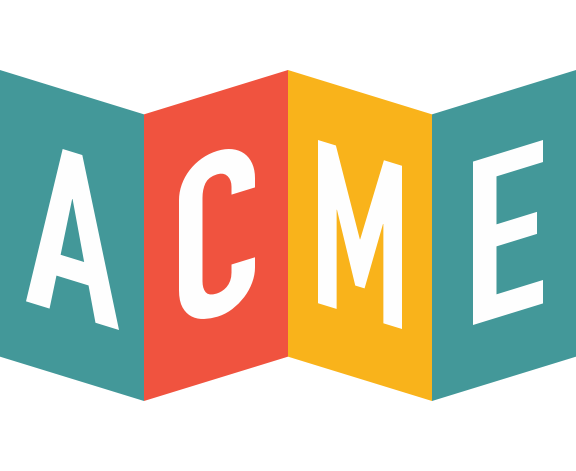
Plan an Event in the Digital Age
Everything you need to know about how to plan an event.
Planning an event is stressful; not least of all a large, public event put on especially for your adoring audience. And with the current pandemic necessitating that all large gatherings be held in the virtual realm, extra layers of pressure and hassle are added to the process. While you won’t have to worry about catering, venue, or transportation, event planning in the digital age comes with its own unique set of problems to be solved.
Team organization, objective brainstorming, marketing. (Deep breath.) Invitations, RSVPs, guest registration, day-of transportation, set up, cleanup, follow up. And now, tech set-up, tech support, social media integration, major troubleshooting, and day-of tech maintenance. (Another deep breath.) The stress and chaos of planning a virtual event for museums, zoos, gardens, and other public-facing nonprofits takes seemingly endless amounts of work and experimentation.
But it can be done. Tech giant Adobe recently concluded their annual MAX convention, wherein the company teaches the creative world how their products are being used. Featured were educational live sessions with Adobe professionals, real-time portfolio critiques for industry creatives, and “rock-star” interviews with visionary celebrities (Annie Liebowitz, Wes Anderson, and David Choe, to name a few.) The con was totally free, entirely online, and a smash hit.
While your organization may not be the actual inventor of modern virtual event tech, it’s still possible for you to host your best-ever event from the comfort and safety of your viewer’s homes. This article will help you get started.
Basic event planner checklist for any event.
Event planners take heed: we won’t be stuck at home forever (we promise.) Someday, live, in-person gatherings will again be possible, and the tips below will be as relevant then as they are now. They’re surprisingly simple, time-tested, and easy to follow. So be sure to add this checklist to your practical toolbox, as well as your virtual one.
Put your audience first.
This is ground zero of event planning. You need to begin by understanding who your target audience is, what they want, and how to cater your event to them to elicit the best response possible. Are they everyday visitors, families, premium members, major donors, or stakeholders? Are they some kind of mix thereof? And what activities, seminars, or content will they find engaging? Knowing your market inside and out is the first step to delivering an excellent experience. Once you have that down, you can begin to plot out your event goals.
Define Objectives
What’s your game? A party for party’s sake sounds great, but few organizations are going to put the time and effort into planning a gathering if all you’ll come away with is a hangover (virtual or not.)
And setting specific intentions before you begin to plan can help to determine every other aspect of the event, including team size, budget, activities, and even the catering menu. Are you celebrating a new exhibit at your institution? Fundraising for a relevant cause? Is your objective to educate your audience, or persuade them to become members of your organization? If point one is understanding what your audience wants, this point is understanding what you want. And, what steps to take in order to create a mutually beneficial gathering.
Organize a team.
Your event committee includes everyone from day 1 party planners to day of tech support; from social media marketers, to guest speakers and presenters. Each role in question is critical to the success of your function. Not least of all for virtual events, where one missing line of code can spell disaster for the experience. The format, location, and intention of your event will help to determine what these critical roles are and how they should be filled.
And this point on our checklist, if done right, is remarkably easy. That’s because teammate number 1 should always be a professional events planner. It can be tempting to get down to the details yourself (no one knows what you want better than you, right?) But an excellent event planner will not only deliver the party of your dreams, but they might even pick up on some of the details you miss. And while they’re doing the nitty-gritty work of putting an event together, you can spend more time and energy on other aspects, like wooing your star speaker.
Budget.
Adobe’s budget for MAX included 481 paid speakers, months of animated marketing material, servers to support thousands of viewers, event swag, and all the tech needed to deliver a smooth digital experience. We shudder to imagine the invoice.
While your budget won’t be quite so extraordinary, your itinerary will likely be very similar: marketing, venue (or virtual platform), event-specific merch, viewer experience technology, event staff, and guest speakers. While it might look scary on paper, event budgeting is just an amalgamated version of other day-to-day financial planning.
If this is your first rodeo (exhibit opening, shareholder meeting, etc., etc.) you can begin estimating your event expenses based on regular budgeting practices. What does a month-long social media marketing campaign normally cost? How much do you spend on a typical virtual gathering, and how can you expand that budget to incorporate an audience of 1000? If you’ve held an event or two in your time, look back at parties past for your best guess at event costs. You can edit as needed, based on the successes and failure of historic gatherings.
Don’t forget to figure ticket sales and in-kind donations into your budget assets, as well. It can save you a significant amount of money to reach out to the local community and see who has resources they might be willing to share. Additionally, consider event sponsorship to really cut costs. To find out more about sponsorship, check out our other article: How to Get Sponsored for an Event.
How ACME can help.
ACME is a comprehensive ticketing and membership platform that caters to cultural institutions of all kinds. ACME works to deliver outstanding in-person events, as well as those on the virtual plane. Whether you’re selling paper admission or a password to your latest zoom link, ACME makes it easy and enjoyable, for both your audience and your team.
If you’ve got an event coming up, request a demo of ACME today to see how we can help.

